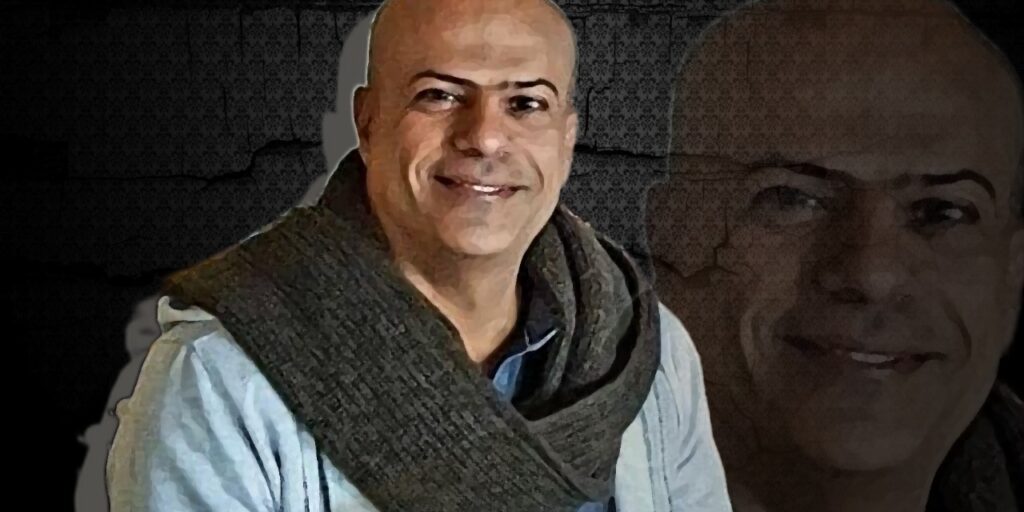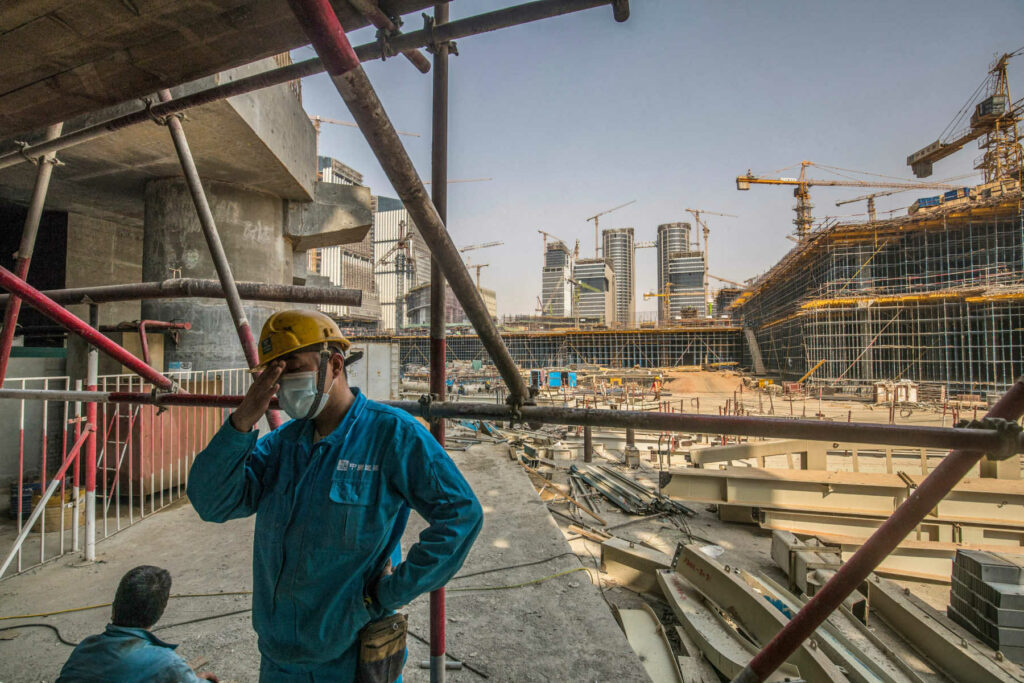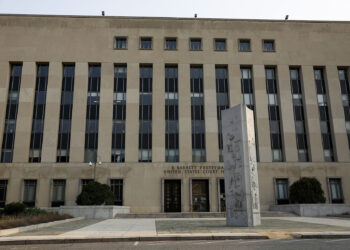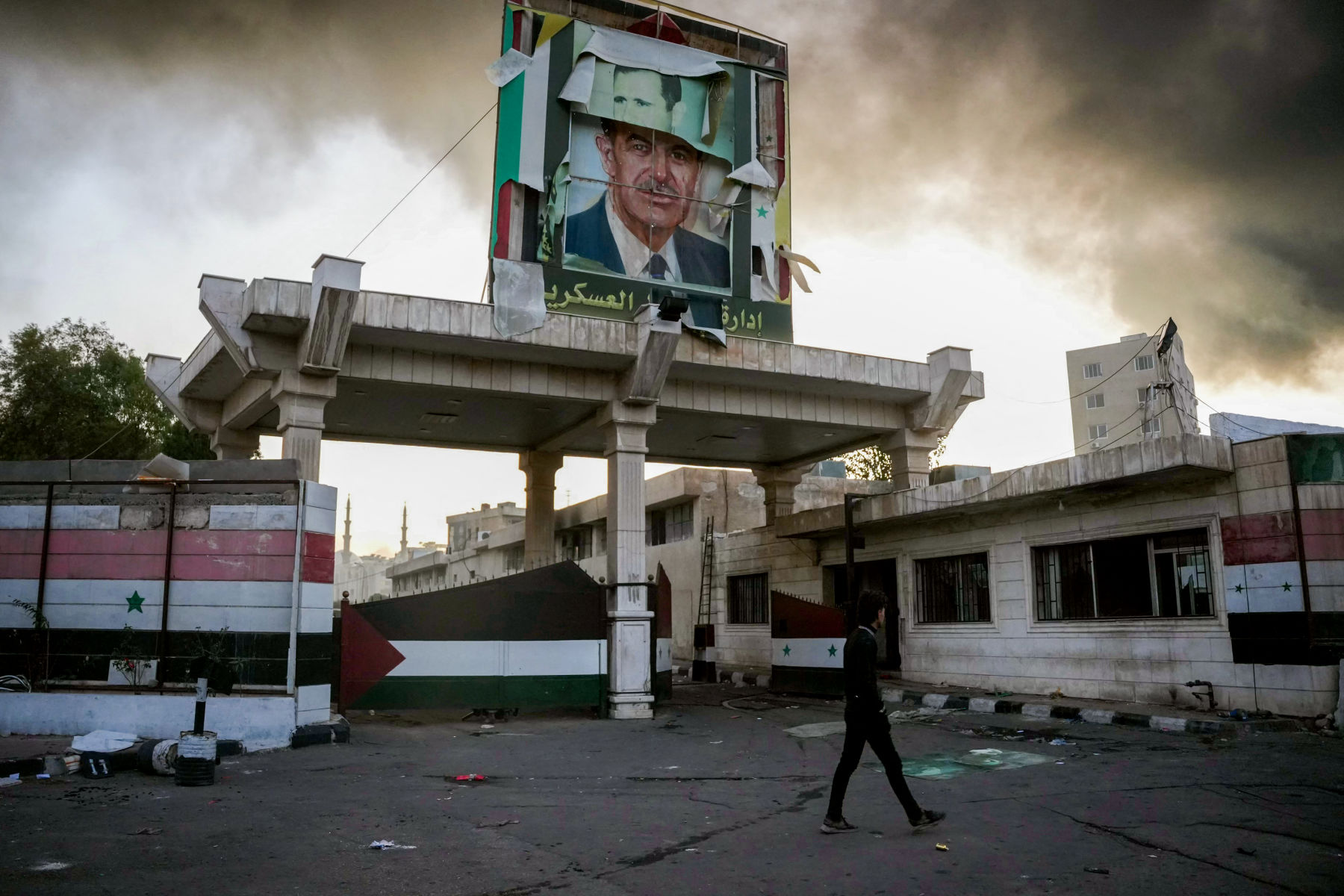Muhammad Kamal is a former research assistant at DAWN, where he worked on human rights protections in Egypt and across the region.
Ayman Hadhoud, a well-known economist in Egypt and frequent critic of the Sisi government's economic policies, disappeared in Cairo on Feb. 5, 2022. Hadhoud later died under mysterious circumstances in a state-run mental health hospital on March 5. Egyptian authorities continued to deny Ayman's detention for weeks after that, and did not notify Ayman's family of his death until more than a month later, on April 9. Subsequent reporting showed that Egyptian authorities forcibly disappeared Ayman, as Egyptian officials gave conflicting and implausible explanations for his arrest and death.
Omar Hadhoud, Ayman's oldest brother, led many attempts to verify Ayman's whereabouts and visit him after his disappearance. Omar made multiple trips to various Egyptian police stations to locate Ayman, but authorities continually turned him away. After learning of Ayman's detention at the Abbasiya Mental Health Hospital in Cairo, hospital officials first denied Ayman's presence there and then insisted that the Public Prosecutor must provide permission before any visit. Misled for months, Omar did not learn of his brother's death until the day Egyptian officials summoned him to collect his brother's body from the hospital morgue.
Following Ayman's death, reports quickly emerged suggesting Ayman was tortured before his death. Egypt's National Council on Human Rights issued a statement noting its concern over Ayman's "alleged forced disappearance," and the Public Prosecutor's office initiated an investigation, including an autopsy, regarding the cause of Ayman's death and whether he was tortured while in state custody. Ayman's family stated that his body showed signs of torture and took pictures to document this abuse, but hospital officials forced them to delete the photos. Some of these photos survived, and forensic experts working with human rights organizations concluded that torture or ill-treatment was likely.
Unsurprisingly, Egypt's Public Prosecutor reached a different conclusion: that there were no indications of torture or ill treatment, and that Ayman died from an existing heart condition, through no fault of the detaining authorities. Egyptian officials refused to allow outside experts to examine Ayman's body or to perform an independent autopsy.
In an interview with DAWN from his home in Cairo, Omar Hadhoud recounted his desperate attempt to find his brother in custody and eventually retrieve his body. He also discussed the research that made him a target of President Abdel Fattah al-Sisi's regime—on the military's control of the economy, Egypt's possible bankruptcy, and how Sisi "manages the economy as if it were one man's estate." It was that research, Omar said of his brother, that "led him to his fate."
The following transcript has been edited lightly for clarity and length.
"When I photographed Ayman's body, they took my cell phone and broke it. The fractures in his skull were very clear. There were also fractures in the breastbone, and there was a large sore in the back. I saw cigarette burns."
- Omar Hadhoud
Can you tell us about your brother, economist Ayman Hadhoud?
In short, Ayman, since the beginning of his life, was very serious, and his cultural interests were greater than his age. He was raised in a cultural setting based on the thoughts of the opposition. He read madly and seriously and with great interest in what he read, and his intellectual capacity was noticeable to everyone. The truth was the basis of his life, and science was his first interest.
Ayman was a distinguished researcher. Can you tell us about his career?
Ayman graduated from the Department of Political Science at the American University in Cairo (AUC), and went to work in political and economic research. He completed his master's thesis on the [Egyptian government's] general budget, and he later became one of the best experts in Egypt in this field. He was always researching thorny issues.
AUC asked him to take the job of financial observer, which did not last long because of his collision with the terrible financial corruption within the university. He then returned to research and work in budget analysis, and founded a company for this purpose. This was his favorite work throughout his life. Ayman was convinced to return to politics and aspired to create a newspaper called Al-Mada'in (The Cities), aimed at reviving the nation, but the project did not succeed, as the first printing was prevented by the authorities. He had a book project in which he shared part of the research with me, titled The Facts.
What were some of the topics around Ayman's economic research?
Recent topics included elections, the public budget and corruption, and the military in the economy—that's the most sensitive topic. These were the research areas from the beginning of his career, which from his point of view led to the destruction of the state and the transformation of its capabilities by eliminating public administration and the law, leading to control by one man. Then he touched on the details of how the ruling gang exerted control over the capabilities of the state, and then finally to the economy of the army, which led him to his fate.

What are the details of the night your brother was arrested?
We met, as usual, for dinner and constant conversation. One of my friends was with us. I was the closest to Ayman. He did not consider me only a brother, but also his close friend, who handled and carried all his secrets by virtue of his profession throughout our lives. We work in the same field, economics. Then, [after dinner], he went for his own appointment and disappeared.
Ayman talked about the danger he faced two months before his disappearance, and I understood the nature of the danger he felt due to his latest research, on the bankruptcy of Egypt. Ayman was the first to predict Egypt's bankruptcy and blamed the upcoming economic collapse on the army's control of the economy.
What did your family do when Ayman disappeared that night? What actions have they taken since then?
My expectations were that a bad thing was to be expected. I called my contacts in the government and in the office of Anwar Sadat [a former member of Parliament and leader of the Reform and Development Party, who is the nephew and namesake of the former president]. They advised me to wait 48 hours to be certain. According to the law, two days must pass before we can report a missing person, but I felt the danger and arranged my thoughts to prepare the appropriate action.
As I expected, it was only 48 hours later when a State Security agent came to the family home and told us that Ayman was arrested and detained in al-Amiriya Police Station and that we should go there. A police officer added that Ayman was still under investigation. We asked the officer to visit Ayman and to bring him food and clothes, but he told us that visitation is forbidden. We were also informed that the purpose of the detention was to inquire about his family and his brother, me.
Did you go to al-Amiriya Police Station?
On the third day [after Ayman's disappearance] we went to al-Amiriya, and the police kicked us out and told us that we were not allowed to visit him. We were not supposed to come, and the police department would contact us. We learned that according to the police report, Ayman was arrested in Qasr al-Nil Police Station, but it was al-Amiriya Police Station that informed us of Ayman's arrest. I think it is all a lie, and that Ayman was arrested directly by State Security forces and taken to an unknown location.
When and how did you know that the Egyptian authorities transferred Ayman to the Abbasiya Mental Health Hospital?
The Egyptian authorities did not take him to the hospital until after his death. It was a lie to hide the fact that he had been liquidated. Anwar Sadat's office informed us that Ayman was in the hospital. I went to the hospital, but they denied his presence at first, and then they insisted that he was there, and it was also a lie to consume time. We learned that he was arrested under a false charge of stealing a car in Senbellawein in Dakahlia governorate [north of Cairo]. The hospital administration asked us to get a visit permit from the Public Prosecutor's office. But we were surprised when we went to the Public Prosecutor's office and there was no record number or case for Ayman. Then we went to the Senbellawein prosecutor in Dakahlia and found no case involving Ayman. We finally went back to the hospital, and they told us again that visiting Ayman was forbidden. We returned again to the Public Prosecutor's office, who asked us for the number of the case and said there was no case involving Ayman Hadhoud.
Egyptian authorities claimed that Ayman showed signs of schizophrenia, but your family denied these claims. Can you tell us the details? Why did the authorities make these claims?
They are a despicable lie to justify his assassination. It was a scandalous lie given the succession of events until the last day we had dinner.
When did you go to Abbasiya Mental Health Hospital to check on what the hospital administration did?
As soon as we were told [that Ayman was there] by Anwar Sadat's office. As I said earlier, the director of the hospital claimed that Ayman was charged with stealing a car from Senbellawein, which is about 120 kilometers from Cairo. This claim was to mislead us and to gain time and instructions from the state agencies. We went to the hospital almost daily. But with their misinformation, they were the master of the situation.
Anwar Sadat's office handled our communications, and they told us Ayman was in the hospital. Members of his office also went to the hospital and told us that the hospital said Ayman was there, and they were not allowed to visit him.
When did you learn of Ayman's death?
A friend of Ayman's hacked into the hospital's records and discovered that "died on March 5" was written next to his name. This was on April 1. I went to the hospital, but they completely denied this information. One of my friends, who is a general in the Egyptian police, was with me. I won't mention his name, but the hospital administration told us that the hospital papers did not mention that Ayman was dead.
"Ayman was the first to talk about the possibility of a bankrupted Egypt. He exposed that the ruling government is a dangerous gang that seizes property throughout the country, and manages the economy as if it were one man's estate."
- Omar Hadhoud
Why didn't the authorities inform you earlier, if Ayman had died a month ago?
It must have been to hide the crime. The problem they faced was that the news of Ayman's disappearance spread widely outside Egypt. For example, when Egyptian Minister of Foreign Affairs Sameh Shoukry visited the United States, reporters asked him about the disappearance. [The authorities] placed the body of my brother in a refrigerator for 35 days, which is not suitable for the preservation of a body for more than two days. I believe they did that for the possibility of decomposing his body and hiding traces of torture. But their plans failed: Ayman's body did not decompose, and the traces of torture remained.
We learned of his death officially when we were notified by an officer from Nasr City Police Station Two, 35 days after his death.
Egyptian authorities claimed that Ayman was arrested during an attempt to break into an apartment in Zamalek, the upscale neighborhood in central Cairo. They also claimed that he tried to steal a car from Senbellawein, in the Nile Delta. What is your response to these conflicting claims?
These are lies made by the Egyptian authorities, and these conflicting accounts are blatant evidence of these lies. The address mentioned in the police report is 15 Maraashly Street in Zamalek. This address is occupied by a consultant and guarded by Ministry of Interior agents at the door. You are not allowed to enter until after security measures are completed, and there is an armed guard there 24 hours a day. But Costa Coffee also has the same address. Ayman used this café as a "headquarters," because it is close to AUC.
I think Ayman was kidnapped from inside the Costa Coffee café, and when he resisted and refused to be kidnapped, they started to beat him until he succumbed. They could have dragged him to a microbus waiting for them. Even if there were people who gathered and watched, the agents who kidnapped him could have claimed that he was a terrorist to frighten those people who were watching.
Moreover, in the same place, there are 14 security cameras for the building, and dozens of indirect cameras. The prosecution refused to view the recordings from these security cameras and threatened us not to mention this issue.
The confusion from the authorities is obvious, from claiming to steal a car 120 kilometers away from Cairo or breaking into an apartment in Zamalek. Moreover, when someone is arrested by the police and taken to the police station, the station contains cameras that monitor the department around the clock, and the locations where police records are kept are also covered with surveillance cameras. Even the Public Prosecutor's office has surveillance cameras. But all our requests to see the recordings from these cameras were denied.
Have the Egyptian authorities provided or shared with you Ayman's arrest report, or any records of its investigations?
No. It never happened. All the communications were oral, conflicting, and they didn't even let us copy a paper. They didn't share any camera footage, even the hospital cameras. When did he get to the hospital? We discovered that the hospital ward he stayed in is monitored by cameras 24 hours a day. We asked the doctors, and they said that monitoring the ward with cameras is a basic procedure, as the patient enters for 45 days for observance, which means that the cameras are on and recording during the investigation of the prosecution.
Ayman was not hospitalized for treatment; he was transferred to the hospital after he had been killed. The communications from the hospital are conflicting. The ward manager said Ayman died 15 days ago, and prosecutors said he died 35 days ago. A consultant wrote a report about Ayman's death that I didn't even see. Another consultant told me that he was called after Ayman's death and refused to write a report because he knew that Ayman was dead. All the talk is conflicting and not true.
Doctors sympathetic to us said that Ayman entered the hospital at 11:00 p.m. and no one saw him. On April 10, the mortuary nurses said that Ayman's body entered the refrigerator with two others 35 day before this conversation, which means Ayman passed away on March 5, 2022.
The director of the hospital refused to talk to us or give us any information and said only, "Go to the prosecution, I have nothing to do with this." Everyone is conflicted. This is the situation, and only God knows the truth.
When you went to recover Ayman's body, were there any suspicious marks or signs of abuse? You previously said that Ayman's skull was fractured. Can you confirm this?
Yes, the blood was still dry all over his body, and the fractures and burns were very clear. When I photographed Ayman's body, they took my cell phone and broke it. They were very angry. While washing Ayman's body, I was able to photograph and transfer the pictures immediately before leaving the morgue. The fractures in the skull were very clear. There were also fractures in the breastbone, and there was a large sore in the back. I saw cigarette burns, as many spots did not exceed 1 centimeter in his chest and face. Certainly, the cigarette burns and the effects of torture are very clear. I mentioned all this to the prosecutor and insisted on recording it, despite the objection of the investigator.
[Note: DAWN and The New York Times viewed these photographs before The New York Times published an article detailing Ayman's case and his death on April 27, 2022. Amnesty International also viewed these photographs and shared them with forensic experts before they concluded that these pictures and other evidence "strongly suggests that Ayman Hadhoud was tortured or otherwise ill-treated before his death."]

Have you found out what happened in the hospital that led to Ayman's death?
All the information is contradictory. One message was that Ayman was transferred to the hospital after his death, and that Ayman entered the hospital at 11 p.m. under the instructions of the director of the hospital—but all the conflicting words contradict each other.
Fear controls the situation. There were some conscientious people, secretly talking about Ayman's entry. One person said, "No one saw him. Empty the cameras. You will know the truth. The hospital director is the criminal. Your situation is not the first."
And the morgue worker who received the body said, "Where have you been since March 5? Three bodies came in at the same time without family information, and the authorities intended to bury them in the charity cemeteries for unknown identities."
The U.S. government has called on the Egyptian authorities to conduct a credible investigation into Ayman's death. Will this happen?
No. The Egyptian authorities will not respond. Or they simply will convict their men who have been granted a license to murder. Time will be served until the subject is forgotten, as is always the case in such situations. I think the authorities will look for bargains that will one day make Americans forget about it.
What did you think when the 28th Circuit Court of the Cairo Criminal Court decided to close the case into Ayman's murder?
We didn't see the case, we couldn't photograph the investigation, and we didn't read the case report. They told us, "If you want to read the case, we will give it to you, and you only have two hours to read it." They prevented us from photographing the investigation, using cell phones, and even pens. The case report exceeds 500 papers. How can we read this in two hours?
Did Ayman's research on the role of the Egyptian army in the economy lead to his arrest and death?
Indeed, this was a fundamental reason for it, and I said this to The New York Times. Ayman, as I mentioned, was the first to talk about the possibility of a bankrupted Egypt. He also exposed that the ruling government in Egypt is a dangerous gang that seizes property throughout the country, and that it manages the economy as if it were one man's estate.
The Public Prosecutor's office issued a statement on April 18 saying that Ayman's death was not criminal—that he died of a heart condition—and that there were no signs of torture or ill-treatment on his body. What is your response?
During the prosecutor's investigation, I insisted to record the effects of torture on Ayman's body, and I was ready to have his body reexamined, provided he was examined by a committee from outside Egypt and that they would perform the autopsy. Of course, this request was rejected and ridiculed, but I assure you, everything was prepared.
Why did the Egyptian authorities cover up Ayman's murder?
The latest research that Ayman published in December 2021 [on Egypt's possible bankruptcy and the outsized role of the military in the economy] was a scandal for them, so the government decided to liquidate him.
How do you want people to remember Ayman?
All I hope is that people will remember Ayman for his scientific contributions, and that he did not give up on adhering to his professional responsibility or acting with honesty, as well as the value of the research that he brought to people.





































